Handwriting practice Social Studies Worksheets for Ages 5-8
6 filtered results
-
From - To
Discover our engaging Handwriting Practice Social Studies Worksheets crafted for kids aged 5-8 at Kids Academy. Designed to make learning fun, these printables improve handwriting while introducing essential social studies concepts like community helpers, historical figures, map reading, and cultural awareness. Each worksheet promotes fine motor skills and letter formation, helping young learners develop both academically and socially. Perfect for both classroom and home use, these activities captivate children through interactive and informative tasks. Foster a love for learning in your child with our innovative and age-appropriate worksheets. Start exploring today for endless educational fun!
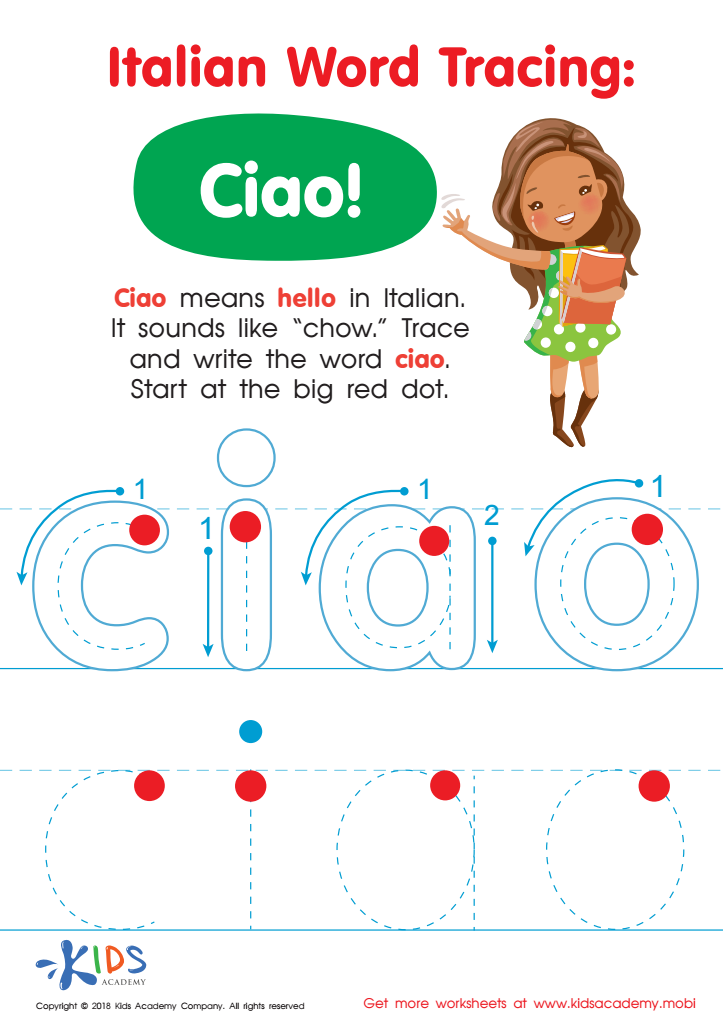

Italian Word Tracing: Ciao Worksheet
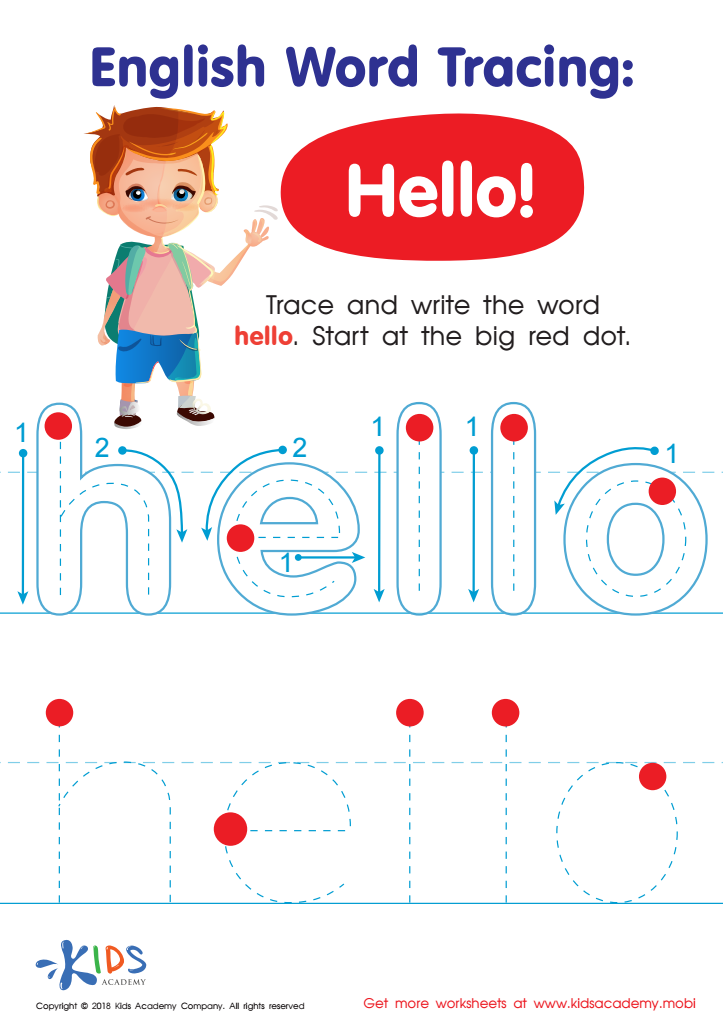

English Word Tracing: Hello Worksheet
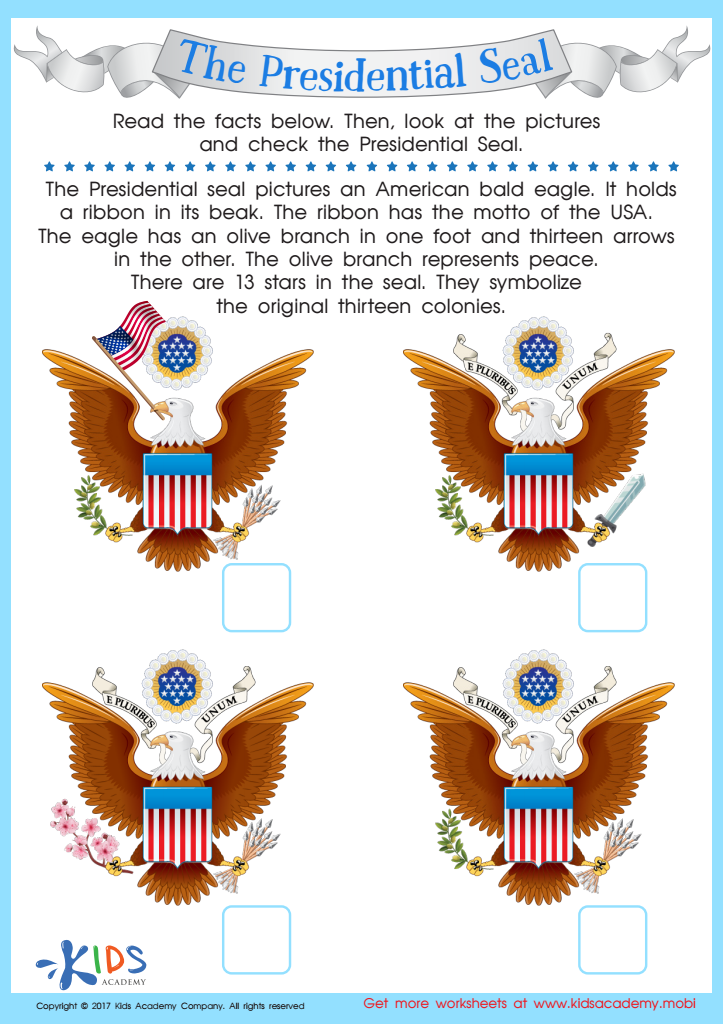

The Presidential Symbol Worksheet
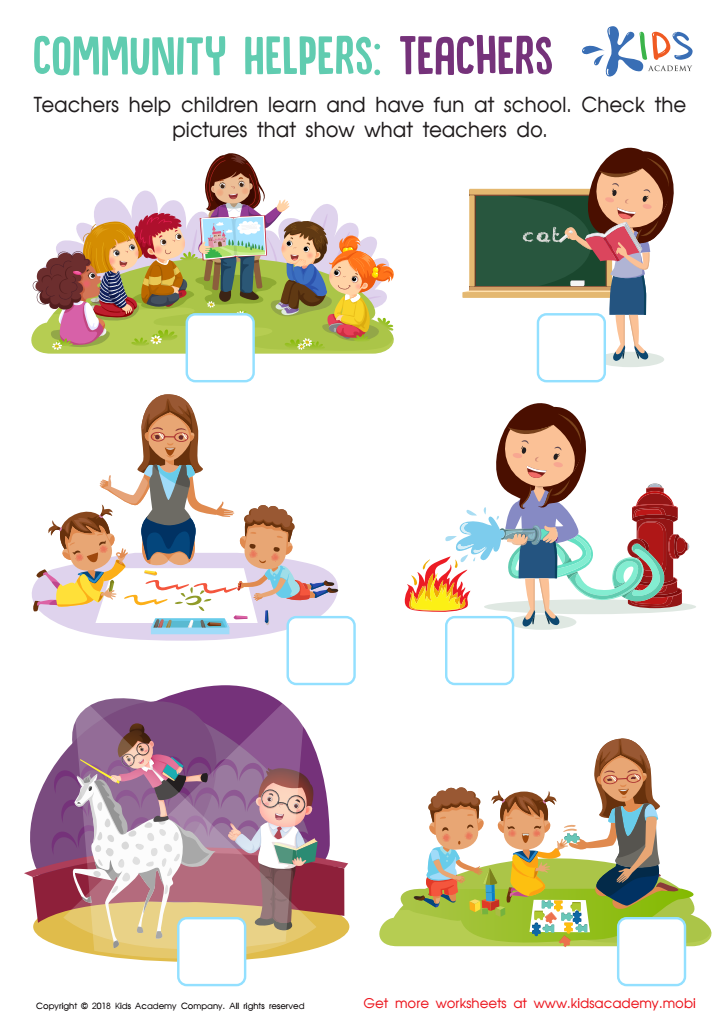

Teachers Community Helpers Worksheet
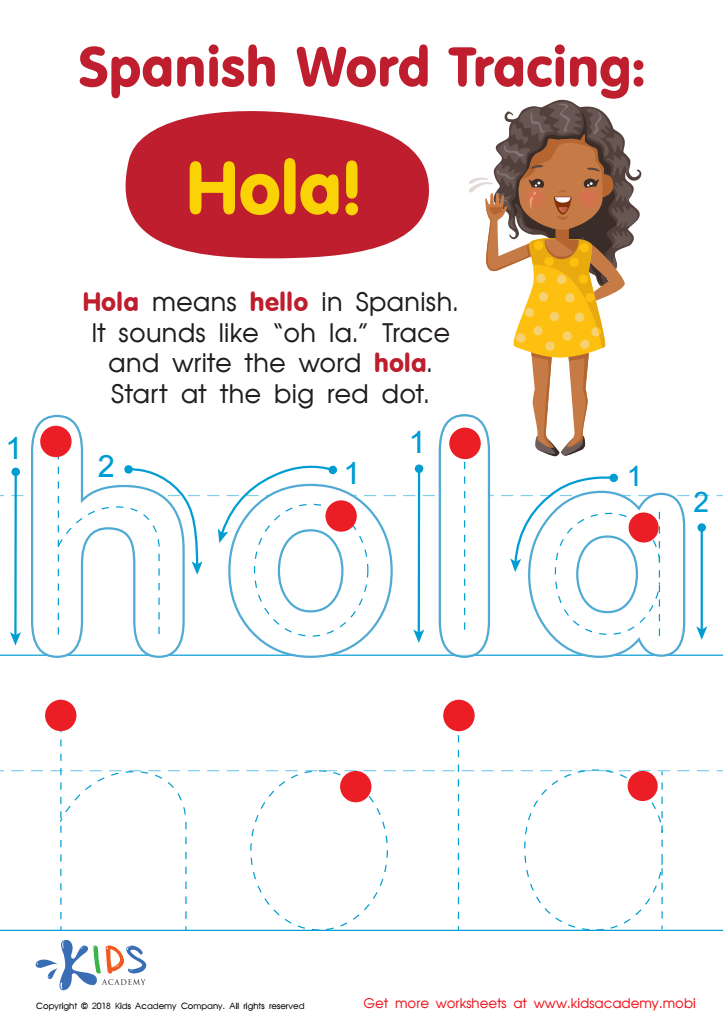

Spanish Word Tracing: Hola Worksheet
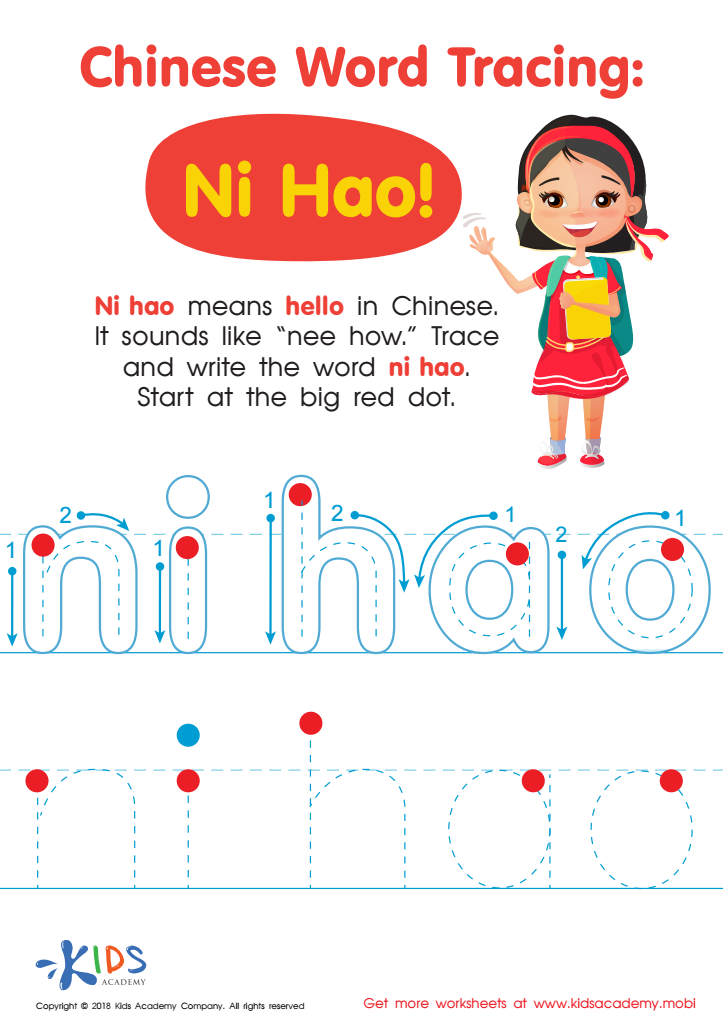

Chinese Word Tracing: Ni Hao Worksheet
Handwriting practice and Social Studies education for ages 5-8 are foundational for young learners for several compelling reasons. First, handwriting practice is crucial in building fine motor skills, eye-hand coordination, and cognitive development. Learning to write legibly aids children in expressing their thoughts clearly, fostering better communication skills. It also enhances their reading abilities as they become more familiar with letters and words, strengthening overall literacy.
Social Studies for early grades enriches students' understanding of their community, heritage, and the world. This subject helps children develop a sense of identity and cultural awareness by exploring different traditions, family structures, and places. It lays the groundwork for responsible citizenship by teaching the basics of rights and responsibilities, thus nurturing empathy and social-emotional skills.
Integrating handwriting practice with Social Studies can be particularly effective. For example, writing about different cultural practices or historical events combines skill development with content learning. This dual approach keeps students engaged and helps solidify the lessons being taught.
In essence, prioritizing handwriting and Social Studies in early education is vital. These areas not only cultivate essential academic skills but also support holistic development, preparing children to become informed, articulate, and empathetic individuals.
 Assign to My Students
Assign to My Students

















